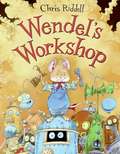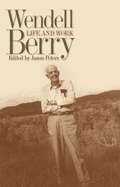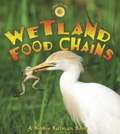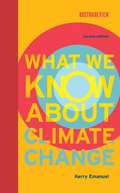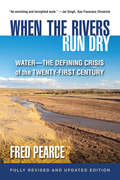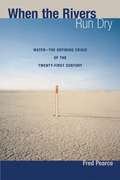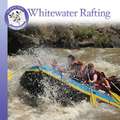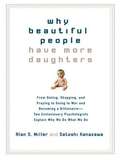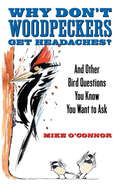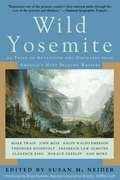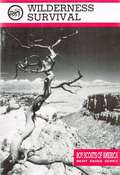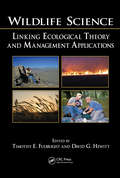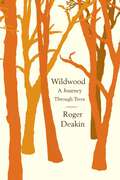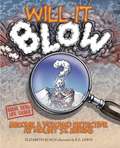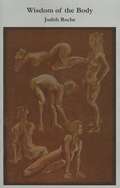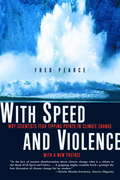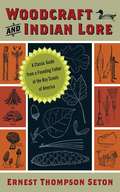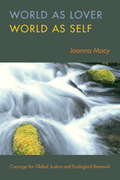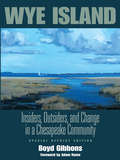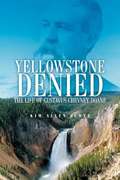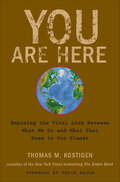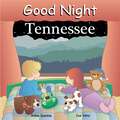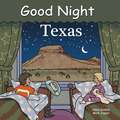- Table View
- List View
Wendel's Workshop
by Chris RiddellWendel is far too busy inventing things to keep his workshop tidy. So if one of his inventions doesn't work, Wendel just tosses it onto the scrap heap and starts over. Then one day he invents the magnificent Wendelbot--a mighty robot that cleans and cleans and doesn't stop. Soon poor Wendel finds himself thrown onto the scrap heap! How will Wendel win back his workshop? Let the robot battle begin! From the award-winning and always imaginative Chris Riddell comes a wonderfully funny, action-packed story full of surprises and extraordinary inventions.
Wendell Berry: Life and Work (Culture of the Land #Cull)
by Jason PetersA portrait of an American thinker with contributions by Barbara Kingsolver, Bill McKibben, Sven Birkerts, Wes Jackson, and more: “A masterful collection.” —Charlotte ObserverEssayist, social critic, poet, “mad farmer,” novelist, teacher, and prophet: Wendell Berry has been called many things, but the broad sweep of his contemporary relevance and influence defies facile labels. With a unique perspective and far-reaching vision, Berry poses complex questions about humankind and our relationship to the land and offers simple but profound solutions. Berry’s writings give voice to a provocative but consistent philosophy that extends far beyond its agrarian core to include elements of sociology, the natural sciences, politics, religion, philosophy, linguistics, agriculture, and other seemingly incompatible fields of study.Wendell Berry: Life and Work examines this wise, original thinker, appraising his written work and exploring his influence as an activist and artist. Each of the contributors—including Hayden Carruth, Sven Birkerts, Barbara Kingsolver, Stanley Hauerwas, Donald Hall, Ed McClanahan, Bill McKibben, Scott Russell Sanders, Norman Wirzba, Wes Jackson, and Eric T. Freyfogle—examines an aspect of Berry’s varied yet cohesive body of work. Also included are highly personal glimpses of Berry: his career, academic influence, and unconventional lifestyle.These deft sketches show the purity of Berry’s agrarian lifestyle and demonstrate that there is nothing simple about the life to which he’s devoted himself. He embraces a life that sustains him not by easy purchase and haste but by physical labor and patience, not by mindless acquiescence to a centralized economy but by attention to local ways and wisdom. This book combines biographical sketches, personal accounts, literary criticism, and social commentary. The result is a rich portrait of one of America’s most profound and honest thinkers.
Wetland Food Chains (Food Chains)
by Bobbie Kalman Kylie BurnsA wide variety of plants and animals live, visit, and feed in wetlands, but wetlands are fast disappearing. This informative book describes life in a specific wetland--the marsh. Beautiful photographs, illustrations, and text explain which plants and animals live in this habitat and how they interact with one another. Young readers will learn about* wetland herbivores, carnivores, and omnivores* how wetland animals survive the changing seasons* the importance of wetlands to migrating animals* dangers to wetlands
What We Know About Climate Change
by Kerry EmanuelThe vast majority of scientists agree that human activity has significantly increased greenhouse gases in the atmosphere--most dramatically since the 1970s. In February 2007 the Intergovernmental Panel on Climate Change found that global warming is "unequivocal" and that human-produced carbon dioxide and other greenhouse gases are chiefly to blame, to a certainty of more than 90 percent. Yet global warming skeptics and ill-informed elected officials continue to dismiss this broad scientific consensus. In What We Know About Climate Change, MIT atmospheric scientist Kerry Emanuel outlines the basic science of global warming and how the current consensus has emerged. Although it is impossible to predict exactly when the most dramatic effects of global warming will be felt, he argues, we can be confident that we face real dangers. Emanuel, whose work was widely cited in media coverage of Hurricane Katrina, warns that global warming will contribute to an increase in the intensity and power of hurricanes and flooding and more rapidly advancing deserts. But just as our actions have created the looming crisis, so too might they avert it. Emanuel calls for urgent action to reduce greenhouse gases and criticizes the media for playing down the dangers of global warming (and, in search of "balance," quoting extremists who deny its existence). An afterword by environmental policy experts Judith Layzer and William Moomaw discusses how the United States could lead the way in the policy changes required to deal with global warming. Kerry Emanuel is Professor of Atmospheric Science in the Department of Earth, Atmospheric, and Planetary Science at MIT. He is the author of Divine Wind: The History and Science of Hurricanes and Atmospheric Convection. In May 2006 he was named one of Time magazine's "Time 100: The People Who Shape Our World."
When the Rivers Run Dry, Fully Revised and Updated Edition: Water-The Defining Crisis of the Twenty-First Century
by Fred PearceA new edition of the veteran science writer's groundbreaking work on the world's water crisis, featuring all-new reporting from the most recent global flashpointsThroughout history, rivers have been our foremost source of fresh water for both agriculture and individual consumption, but looming water scarcity threatens to cut global food production and cause conflict and unrest. In this visionary book, Fred Pearce takes readers around the world on a tour of the world's rivers to provide our most complete portrait yet of the growing global water crisis and its ramifications for us all. With vivid on-the-ground reporting, Pearce deftly weaves together the scientific, economic, and historic dimensions of the water crisis, showing us its complex origins--from waste to wrong-headed engineering projects to high-yield crop varieties that have saved developing countries from starvation but are now emptying their water reserves. Pearce argues that the solution to the growing worldwide water shortage is more efficiency and a new water ethic based on managing the water cycle for maximum social benefit rather than narrow self-interest.
When the Rivers Run Dry: Water -- The Defining Crisis of the Twenty-first Century
by Fred PearceIn this groundbreaking book, veteran science correspondent Fred Pearce travels to more than thirty countries to examine the current state of crucial water sources. Deftly weaving together the complicated scientific, economic, and historic dimensions of the world water crisis, he provides our most complete portrait yet of this growing danger and its ramifications for us all. "A strong--and scary--case that a worldwide water shortage is the most fearful looming environmental crisis. With a drumbeat of facts both horrific (thousands of wells in India and Bangladesh are poisoned by fluoride and arsenic) and fascinating (it takes 20 tons of water to make one pound of coffee), the former New Scientist news editor documents a "kind of cataclysm" already affecting many of the world's great rivers." -Publishers Weekly, starred review. "Oil we can replace. Water we can"t-which is why this book is both so ominous and so important." -Bill McKibben, author of The End of Nature
White Water Rafting (Nonfiction Collection)
by Michele DufresneCovers rafting equipment, rowing techniques, trip preparations, and safety, and describes some of the most famous North American rivers.
Who Loves the Fall?
by Bob Raczka Judy SteadIt's hard when summer ends, but the hearty season that follows overflows with holidays, sports, and fun. In this companion to Spring Things, the author and illustrator pay tribute to fall. Judy Stead's vibrant paintings help bring to mind the tastes, sounds, and colors that are autumn. Bob Raczka's rhyming verse is an invigorating celebration of fall.
Why Beautiful People Have More Daughters: From Dating, Shopping, and Praying to Going to War and Becoming a Billionaire-- Two Evolutionary Psychologists Explain Why We Do What WeDo
by Alan S. Miller Satoshi KanazawaNow available in paperback-a provocative new look at biology, evolution, and human behavior "as disturbing [as it is] fascinating" (Publishers Weekly). Why are most neurosurgeons male and most kindergarten teachers female? Why aren't there more women on death row? Why do so many male politicians ruin their careers with sex scandals? Why and how do we really fall in love? This engaging book uses the latest research from the field of evolutionary psychology to shed light on why we do the things we do-from life plans to everyday decisions. With a healthy disregard for political correctness, Miller and Kanazawa reexamine the fact that our brains and bodies are hardwired to carry out an evolutionary mission- an inescapable human nature that actually stopped evolving about 10,000 years ago.
Why Don't Woodpeckers Get Headaches?
by Mike O'ConnorIn 1983, Mike O'Connor opened the Bird Watcher's General Store on Cape Cod, which might well have been the first store devoted solely to birding in the United States. Since that time he has answered thousands of questions about birds, both at his store and while walking down the aisles of the supermarket. The questions have ranged from inquiries about individual species ("Are flamingos really real?") to what and when to feed birds ("Should I bring in my feeders for the summer?") to the down-and-dirty specifics of backyard birding ("Why are the birds dropping poop in my pool?"). Answering the questions has been easy; keeping a straight face has been hard.Why Don't Woodpeckers Get Headaches? is the solution for the beginning birder who already has a book that explains the slight variation between Common Ground-Doves and Ruddy Ground-Doves but who is really much more interested in why birds sing at 4:30 A.M. instead of 7:00 A.M., or whether it's okay to feed bread to birds, or how birds rediscover your feeders so quickly when you've just filled them after a long vacation. Or, for that matter, whether flamingos are really real.
Wild Yosemite: 25 Tales of Adventure and Discovery from America's Most Beloved Writers
by Susan M. NeiderAn ideal gift for lovers of nature. This beautiful literary collection explores the spectacular natural features of Yosemite through the eyes of some of America’s most notable and extraordinarily talented writers. In 1851, Lafayette Bunnell chronicled his travels with the Mariposa Battalion, the first non-natives to visit Yosemite Valley. Following in his footsteps, Theodore Roosevelt, Ralph Waldo Emerson, Mark Twain, Clarence King, Frederick Law Olmsted, Joaquin Miller, and Horace Greeley made their pilgrimages and were moved to recount their observations. Included here as well is the work of John Muir, founder of the Sierra Club, whose love for Yosemite led to the establishment of Yosemite National Park in 1890. This lyrical book is a literary tribute to Yosemite’s gorgeous landscape. A great companion for those who love to travel and revel in the unique natural beauty of the great American West, Wild Yosemite will transport you in spirit to the heart of the Sierra Nevadas, where you’ll experience the canyons, the cliffs, the pines, the mountain air, and the panoramic grandeur of Yosemite National Park.
Wilderness Survival (Merit Badge Series)
by Boy Scouts of AmericaThis book introduces a scout to the skills of surviving in the wilderness away from civilization. He learns about shelter, food and protection skills.
Wildlife Science: Linking Ecological Theory and Management Applications
by Timothy E. Fulbright and David G. HewittConsciously or not, wildlife managers generally act from a theoretical basis, although they may not be fully versed in the details or ramifications of that theory. In practice, the predictions of the practitioners sometimes prove more accurate than those of the theoreticians. Practitioners and theoreticians need to work together, but this proves di
Wildwood: A Journey Through Trees
by Roger DeakinHere, published for the first time in the United States, is the last book by Roger Deakin, famed British nature writer and icon of the environmentalist movement. In Deakin's glorious meditation on wood, the "fifth element" -- as it exists in nature, in our culture, and in our souls -- the reader accompanies Deakin through the woods of Britain, Europe, Kazakhstan, and Australia in search of what lies behind man's profound and enduring connection with trees. Deakin lives in forest shacks, goes "coppicing" in Suffolk, swims beneath the walnut trees of the Haut-Languedoc, and hunts bushplums with Aboriginal women in the outback. Along the way, he ferrets out the mysteries of woods, detailing the life stories of the timber beams composing his Elizabethan house and searching for the origin of the apple. As the world's forests are whittled away, Deakin's sparkling prose evokes woodlands anarchic with life, rendering each tree as an individual, living being. At once a traveler's tale and a splendid work of natural history, Wildwood reveals, amid the world's marvelous diversity, that which is universal in human experience.
Will It Blow?: Become a Volcano Detective at Mount St. Helens
by Elizabeth RuschThis book helps the reader to become a volcano detective who can decipher volcanic clues,with real life cases from Mount St. Helens.
Wisdom of the Body
by Judith RocheWisdom of the Body is a meditation in poetry on the "bodiness,"the physicality of all things: our bodies and how they change, the salmon and their life cycle, trees, flowers, the earth, everything caught in the mystery of time. The book contains a series of poems on the life cycle of Pacific Northwest salmon that was a City of Seattle public arts project, and poems from the libretto of a musical piece by noted composer Janice Gitech, "Navigating the Light."
With Speed and Violence: Why Scientists Fear Tipping Points in Climate Change
by Fred PearceAlthough he considers himself a skeptical environmentalist, Pearce (a former news editor and current environment and development consultant with New Scientist) is highly alarmed about the prospect of global climate change induced by human activity, warning that, instead of the gradual climate change modeled by the United Nation's Intergovernmental Panel on Climate Change, we are quite likely to experience abrupt and violent change triggered by the crossing of hidden tipping points such as the release of huge amounts of methane from the melting Siberian peat, the end of the Asian monsoon as a result of aerosol emissions from China and India, or the shutdown of the ocean's conveyer belt regulating global temperatures. In addition to explaining the science of these tipping points to a lay audience, Pearce profiles the scientists involved in investigating global climate change in the past and predicting its future. Annotation ©2007 Book News, Inc. , Portland, OR (booknews. com)
Woodcraft and Indian Lore
by Ernest Thompson Seton"I should like to lead this whole nation into the way of living outdoors," wrote Ernest Seton over seventy-five years ago. If the nation was in need of a dose of nature then, we can certainly benefit even more from Seton's sage advice now. Learn how to build a campfire, a dam, or a birch bark basket; to recognize animal tracks, constellations, and all manner of forestry; to stop a nose-bleed, ease poison ivy, or soothe a sore throat with natural remedies; to make delicious biscuits on the trail and spot edible mushrooms; and more. This book is essential for Boy Scouts and their leaders, and great fun for anyone desiring a fuller experience of outdoors life.
World as Lover, World as Self
by Joanna MacyA new beginning for the environment must start with a new spiritual outlook. In this book, author Joanna Macy offers concrete suggestions for just that, showing how each of us can change the attitudes that continue to threaten our environment. Using the Buddha's teachings on Paticca Samuppada, which stresses the interconnectedness of all things in the world and suggests that any one action affects all things, Macy describes how decades of ignoring this principle has resulted in a self-centeredness that has devastated the environment. Humans, Macy implores, must acknowledge and understand their connectedness to their world and begin to move toward a more focused effort to save it.
World as Lover, World as Self: A Guide to Living Fully in Turbulent times
by Joanna MacyThis overview of Joanna Macy's innovative work combines deep ecology, general systems theory, and the Buddha's teachings on interdependent co-arising. A blueprint for social change, World as Lover, World as Self shows how we can reverse the destructive attitudes that threaten our world, with concrete suggestions on how to address "An Inconvenient Truth".The essays are based on the Buddha's teachings of "Paticca samuppada" (interdependent co-arising). Reduced to deceptively simple terms this says that everything in the world- every object, feeling, emotion, and action is influenced by a huge, all-inclusive web of factors. Any change in the condition of any one thing in this web affects everything else by virtue of interconnectedness. It makes World as Lover World as Self a quintessential guide for those readers who want to integrate their Buddhist practice with concerns for social issues like global warming. It also breaches the dualities that have haunted much of both Eastern and Western thought, namely the dichotomies between mind/body, humanity/nature, reason/emotion, self/world, science/spirituality.The premise is that self-centeredness, and modern individualisms are ultimately destructive for the environment. We are not individuals separate from the world. Instead we are always "co-arising" or co-creating the world, and we cannot escape the consequence of what we do to the environment. Joanna Macy presents a re-focusing on the beauty of the natural world as personally nourishing and replenishment as one way to move away from our self-centeredness. For this revised edition the author will be adding some chapters as well as removing others. The new ones will deal largely with her new work around the "Great Turning" that will add a somewhat more visionary, future-oriented, and strategic dimension to the book. World as Lover, World as Self shows us how to realize that the earth is an extension of ourselves and how to discover the knowledge, authority and courage to respond creatively to the crises of our time. Foreword Thich Nhat Hanh
Wye Island: Insiders, Outsiders, and Change in a Chesapeake Community - Special Reprint Edition
by Boyd GibbonsToday, most of the 2,800 tranquil acres that make up Wye Island are managed by the Maryland Park Service. However, from 1973 to 1974, the island was the site of a raging controversy. A major developer, James Rouse, wanted to build a compact waterfront village that would be surrounded by large estates, protected farms, and wetlands. A boyhood resident of nearby Easton, Maryland, Rouse hoped that the island could avoid the sprawl of unplanned subdivisions that were marring so many other places along the Eastern Shore. Combining history, journalism, character sketches, and sharp sociological insight, Boyd Gibbons presents the conflict over Wye Island in its multiple dimensions - as an example of the emerging community-based activism of the 1960s and 70s, and of a community that, while exercising its right to preserve its identity, denies opportunities for its members to improve their lives through change. In fact, Wye Island proves not to be the environmental David-Goliath struggle that might be expected. For one thing, residents opposed a development plan that can be regarded as an early model for 'smart growth.' And many were no more favorably disposed to a park or preserve than to a planned village. Their interest was in protecting the community from an invasion of immigrants from ethnically diverse Baltimore and Washington, and, where the wealthy were concerned, protecting some very private views of the water. In the end, rich landowners, poor 'natives,' and many recent newcomers opposed the Rouse project - distrusting change, and, above all, fearing 'outsiders.' The special reprint of Wye Island includes a new foreword by distinguished environmental historian Adam Rome, who explores the enduring themes of Wye Island in context of the current debates about land use, development, and sprawl.
Yellowstone Denied: The Life of Gustavus Cheyney Doane
by Kim Allen ScottFrontier soldier and explorer extraordinaire, Gustavus Cheyney Doane was no stranger to historical events. Between 1863 and 1892, he fought in the Civil War, participated in every major Indian battle in Montana Territory, and led the first scientific reconnaissance into the Yellowstone country. He was always close to being at the right place at the right time to secure lasting fame, yet that fame eluded him, even after his death. Finally, Kim Allen Scott rescues Doane from obscurity to tell the tale of an educated and inventive man who strove in vain for recognition throughout his life. Yellowstone Denied is a psychological portrait of a complex and intriguing individual. Raised in the West after traveling the Oregon Trail with his family, Doane enlisted in the “California Hundred” to fight for the Union. After a failed foray into politics, he returned to the army and headed the military escort of the first government exploration of Yellowstone in 1870. His report on that expedition attracted congressional recognition and contributed to the establishment of Yellowstone National Park but did not make Doane a household name. He fought the Sioux in 1876, the Nez Perces in 1877, and Geronimo in 1886. He also took part in preparations for the ill-fated Greeley Arctic expedition of 1881. During his thirty years in uniform, Doane nearly achieved the celebrity he sought, but twists of fate and, at times, his own questionable behavior denied it in the end. Scott’s critical biography now examines the man’s accomplishments and failures alike, and traces the frustrated efforts of Doane’s widow to see her husband properly enshrined in history. Yellowstone Denied is also a revealing look at military culture, scientific discovery, and western expansion, and it gives Doane the credit long denied him.
You Are Here: Exposing the Vital Link Between What We Do and What That Does to Our Planet
by Thomas M. KostigenIn this groundbreaking book, the New York Times bestselling coauthor of The Green Book Thomas M. Kostigen reveals the vital missing link in today's environmental crisis: how we as individuals are connected to the most tenuous geography on the planet. Despite the recent prominence of "green" issues in the news, the direct relationship between our actions and the earth is too often ignored. But the seemingly insignificant things we do every day have the power to literally alter the landscape in the ongoing battle to resuscitate the planet.
Good Night Tennessee (Good Night Our World)
by Adam GambleThis soothing board book captures the true soul of Tennessee. From the Tennessee River to Graceland, young readers will discover all of their favorite landmarks and attractions, including Lookout Mountain and Rock City, Tennessee Aquarium, Davy Crockett Cabin, Tennessee Railroad, Smoky Mountains, blues musicians, bluegrass music, barbeque, Nashville, and more.
Good Night Texas (Good Night Our World)
by Adam GambleRest your head in the prairies of the Lone Star State! Saddle up, Partner! It&’s time to adventure to the Great State of Texas! Hike all around Big Bend National Park, swim in the warm beach on Galveston Island, learn about the history of the Alamo, and so much more. Texas has so much to offer from different sceneries to huge historical landmarks. This book is the perfect gift to bring for little Texans everywhere, for birthdays, baby showers, housewarming and going away parties.With the Good Night Our World series, toddlers and preschool-age kids can build listening and memory skills by identifying famous landmarks. Perfect for bedtime or naptime, reading simple, soothing phrases to your young one will help them fall gently to sleep. Our readers love that their child will pick a favorite portion of the story to read along with them, and on top of that, these classic board books were built to last! Made from thick paperboard construction, it was designed with your kids in mind.Introduce stories of exploration to your little one using colorful illustrations and distinct vocabulary with Good Night Books. Be sure to look through our entire line of kids picture books about Texas, including Good Night Dallas/Fort Worth, Good Night Austin, Good Night San Antonio, and many more! Surprise your little traveler today with Good Night Texas!
